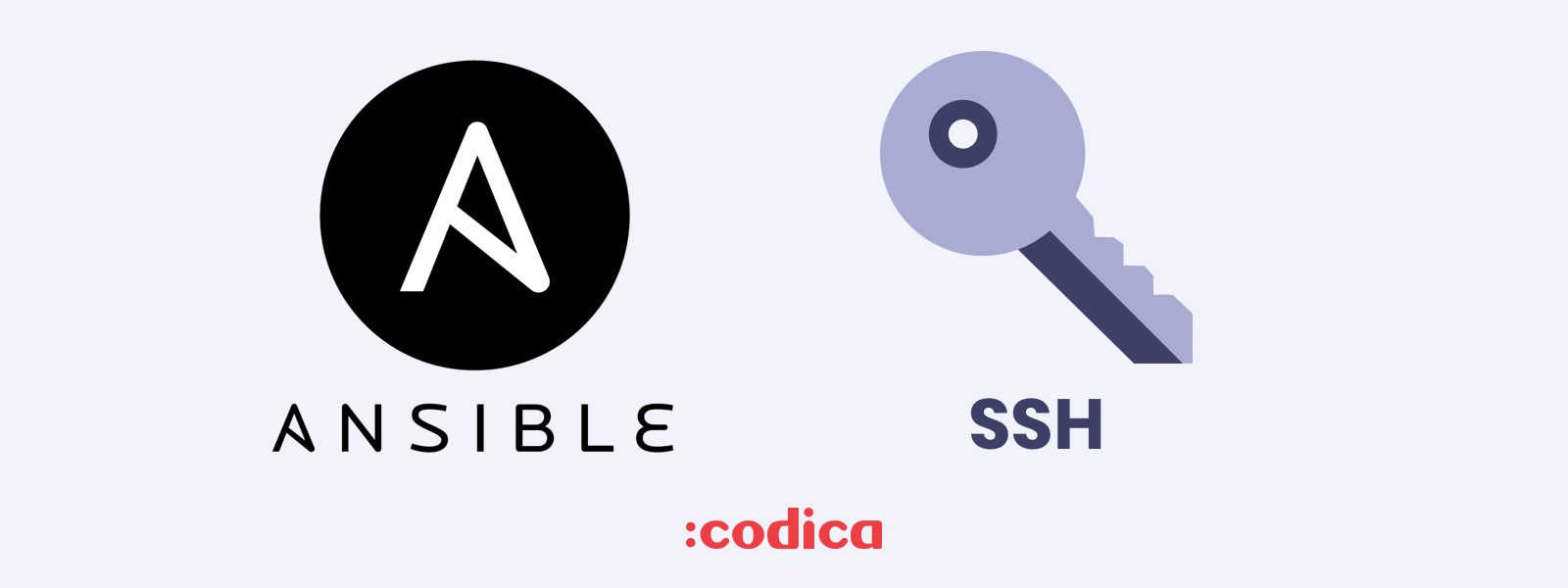The SSH protocol is the global gold standard for remote system administration and secure file transfer. SSH (Secure Shell) is used in every data center and in every major enterprise. One of the features behind the immense popularity of the protocol is the strong authentication using SSH keys.
Ansible is a radically simple IT automation engine that automates cloud provisioning, configuration management, application deployment, intra-service orchestration, and many other IT needs.
Example of Ansible configuration
You will need:
- Remote host IP.
- Keys in .yaml extension.
Steps to configure playbook
- Add your IPs to hosts file.
- Add your host pattern into 'hosts' field.
- Enter Username into 'remote_user' field.
- Enter project name into 'project' field.
- Specify path to your .ssh/authorized_keys.
- OPTIONALLY. By default, file authorized_keys will be replaced by new one. If you need to append your keys to file, you need to change
tr -d "[']" >" to "tr -d "[']" >> - Shell command to ping your nodes: 'ansible -i hosts test -m ping'. # test is your hosts sub-pattern specified in hosts file [test],[aws] etc.
- Shell command to execute playbook: 'ansible-playbook -i hosts change-keys.yaml'.
We store keys in user.yaml file, where each user has own SSH key and list of projects he will need access to.
ssh:
- name: user_1
key: ["ssh-ed25519 AAAAC3NzaC1lZDI1NTE5AA/ZUuJP7XwDphF+ssgdQzIgXg5 user1.codica@gmail.com"]
projects: ["project1","project2"]
- name : user_2
key: ["ssh-ed25519 AAAAC3NzaC1lZDI1NTE5AA/ZUuJP7XwDphF+ssgdQzIgXg5 user2.codica@gmail.com"]
projects: ["project1","project3"]
- name: user_3
key: ["ssh-ed25519 AAAAC3NzaC1lZDI1NTE5AA/ZUuJP7XwDphF+ssgdQzIgXg5 user3.codica@gmail.com"]
projects: ["project3"]
Our playbook will add keys of needed users to remote servers, it will rewrite existing .ssh/authorized_keys file, that's why we can be sure, that we store only authorized keys
---
- hosts: # Set host or a pattern specified in hosts file. You can input address pool here like: [172.17.0.2]. Specify port if :22 is blocked
remote_user: user_name # Choosing user to become on remote machine
become: true
vars:
project: ["project_name"] # Enter the project name to add to the remote host
tasks:
- name: Including keys as variables
include_vars:
file: users.yaml # Choosing file with keys
- blockinfile:
marker: "#{{item.name}}"
block: "{{item.key}}"
create: yes
dest: /home/.tmpkeys # Temporary file is needed to format keys into authorized_keys
state: present
when: project is subset (item.projects)
with_items: "{{ ssh }}"
- shell: cat /home/.tmpkeys | tr -d "[']" | tr ',' '\n' > /home/dev/.ssh/authorized_keys && rm /home/.tmpkeys # Specify path to .ssh/authorized_keys
After running this playbook, we will have .ssh/authorized_keys with following format:
#user_1
ssh-ed25519 AAAAC3NzaC1lZDI1NTE5AA/ZUuJP7XwDphF+ssgdQzIgXg5 user1.codica@gmail.com
#user_1
#user_2
ssh-ed25519 AAAAC3NzaC1lZDI1NTE5AA/ZUuJP7XwDphF+ssgdQzIgXg5 user2.codica@gmail.com
#user_2
Copyright © 2015-2019 Codica. It is released under the MIT License.
The names and logos for Codica are trademarks of Codica.
We love open source software! See our other projects or hire us to design, develop, and grow your product.

